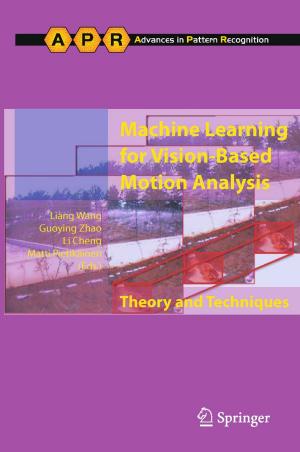A Process Algebraic Approach to Software Architecture Design
Nonfiction, Computers, Computer Hardware, Programming, Software Development, General Computing| Author: | Alessandro Aldini, Marco Bernardo, Flavio Corradini | ISBN: | 9781848002234 |
| Publisher: | Springer London | Publication: | March 14, 2010 |
| Imprint: | Springer | Language: | English |
| Author: | Alessandro Aldini, Marco Bernardo, Flavio Corradini |
| ISBN: | 9781848002234 |
| Publisher: | Springer London |
| Publication: | March 14, 2010 |
| Imprint: | Springer |
| Language: | English |
Inthe?eldofformalmethodsincomputerscience,concurrencytheoryisreceivinga constantlyincreasinginterest.Thisisespeciallytrueforprocessalgebra.Althoughit had been originally conceived as a means for reasoning about the semantics of c- current programs, process algebraic formalisms like CCS, CSP, ACP, ?-calculus, and their extensions (see, e.g., [154,119,112,22,155,181,30]) were soon used also for comprehendingfunctionaland nonfunctionalaspects of the behaviorof com- nicating concurrent systems. The scienti?c impact of process calculi and behavioral equivalences at the base of process algebra is witnessed not only by a very rich literature. It is in fact worth mentioningthe standardizationprocedurethat led to the developmentof the process algebraic language LOTOS [49], as well as the implementation of several modeling and analysis tools based on process algebra, like CWB [70] and CADP [93], some of which have been used in industrial case studies. Furthermore, process calculi and behavioral equivalencesare by now adopted in university-levelcourses to teach the foundations of concurrent programming as well as the model-driven design of concurrent, distributed, and mobile systems. Nevertheless, after 30 years since its introduction, process algebra is rarely adopted in the practice of software development. On the one hand, its technica- ties often obfuscate the way in which systems are modeled. As an example, if a process term comprises numerous occurrences of the parallel composition operator, it is hard to understand the communicationscheme among the varioussubterms. On the other hand, process algebra is perceived as being dif?cult to learn and use by practitioners, as it is not close enough to the way they think of software systems.
Inthe?eldofformalmethodsincomputerscience,concurrencytheoryisreceivinga constantlyincreasinginterest.Thisisespeciallytrueforprocessalgebra.Althoughit had been originally conceived as a means for reasoning about the semantics of c- current programs, process algebraic formalisms like CCS, CSP, ACP, ?-calculus, and their extensions (see, e.g., [154,119,112,22,155,181,30]) were soon used also for comprehendingfunctionaland nonfunctionalaspects of the behaviorof com- nicating concurrent systems. The scienti?c impact of process calculi and behavioral equivalences at the base of process algebra is witnessed not only by a very rich literature. It is in fact worth mentioningthe standardizationprocedurethat led to the developmentof the process algebraic language LOTOS [49], as well as the implementation of several modeling and analysis tools based on process algebra, like CWB [70] and CADP [93], some of which have been used in industrial case studies. Furthermore, process calculi and behavioral equivalencesare by now adopted in university-levelcourses to teach the foundations of concurrent programming as well as the model-driven design of concurrent, distributed, and mobile systems. Nevertheless, after 30 years since its introduction, process algebra is rarely adopted in the practice of software development. On the one hand, its technica- ties often obfuscate the way in which systems are modeled. As an example, if a process term comprises numerous occurrences of the parallel composition operator, it is hard to understand the communicationscheme among the varioussubterms. On the other hand, process algebra is perceived as being dif?cult to learn and use by practitioners, as it is not close enough to the way they think of software systems.















